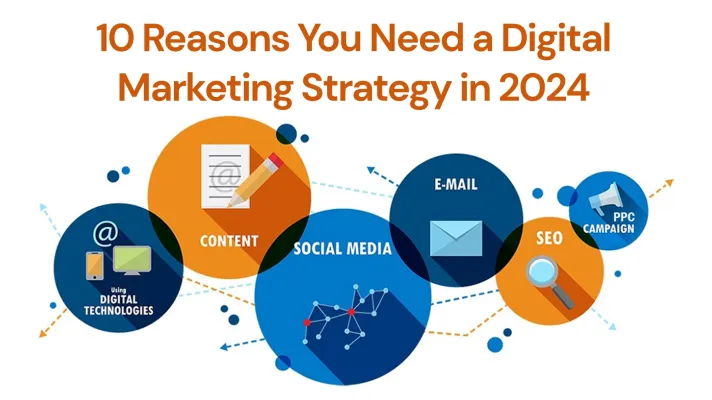
Understanding your audience is crucial for successful marketing, as it directly correlates with demand.
Introduction
Understanding your audience is crucial for successful marketing, as it directly correlates with demand. Marketing strategies must align with consumer preferences, without which even great strategies may not yield success.
Today, Gen Z holds significant influence, making it a prime target for marketers. It’s essential to recognize that traditional marketing approaches may not resonate with Gen Z.
Feeling uncertain about your approach? Don’t worry! This article will provide you with valuable insights for effective Gen Z marketing in 2023.
Who is Gen Z?
Gen Z, short for Generation Z, refers to the demographic group succeeding the Millennials. This generation encompasses individuals born from the mid-1990s to the early 2000s, with older Gen Z members having already completed their education, entered the workforce, and some have even begun families.
Gen Z stands out from previous generations due to the unique environment in which they have come of age, shaping their perspectives, behaviors, and identities.
To gain a deeper understanding of Gen Z, it’s essential to explore their key characteristics and attributes.
Diversity
Gen Z is the most racially diverse generation in history, which has significantly shaped their perspectives and experiences.
Digital Natives
Unlike Millennials, Gen Z is considered true digital natives, having grown up in an era of advanced technology.
Financial Mindedness
Gen Z, having witnessed previous financial crises, prioritizes financial stability and pragmatism.
Privacy
With a strong awareness of online privacy issues, Gen Z values their right to privacy in the digital age.
Shrewdness
Gen Z relies on their extensive social networks and tech savvy to make well-informed purchasing decisions, thoroughly exploring their options.
Progressive
This generation is open-minded and supportive of various social causes, including LGBTQ+ rights, climate change, and mental health awareness.
Given Gen Z’s strong presence in the digital world, it’s essential for marketers targeting this demographic to understand the key social media platforms that are most influential. Let’s explore these platforms in more detail.
Social Media Platforms that Gen Z Marketers Should Use the Most
Let’s explore the prominent social media platforms for reaching Gen Z:
Instagram remains highly popular among Gen Z, with 92% of them using the app in 2021, and 78% of them being daily users. A strong presence on Instagram can provide significant exposure and boost sales when utilized effectively.
Gen Z appreciates the direct and straightforward nature of Twitter. Approximately 64% of Gen Z uses Twitter, with 45% using it at least once a week. Engaging with Gen Z through Twitter can be an effective strategy in 2023.
TikTok
TikTok wields substantial influence, especially among the younger Gen Z demographic. Trends that go viral on TikTok quickly find their way onto users’ “For You” pages. Skillful marketing on TikTok can lead to a substantial increase in sales.
YouTube
Gen Z frequently engages with YouTube. Savvy marketers collaborate with the right content creators and influencers to effectively promote their products, ensuring both exposure and profitability.
Snapchat
Around 71% of Gen Z uses Snapchat daily, with 51% opening the app at least 11 times a day. Leveraging Snapchat’s interactive and fun messaging platform for advertising can make a significant impact on Gen Z.
Marketing to Gen Z can be a challenge due to their discerning consumer behavior and the ineffectiveness of traditional marketing strategies. In the next section, we’ll outline five best practices for successfully marketing to this generation.
Gen Z Marketing Best Practices | How To Market?
To successfully market to Gen Z, consider the following strategies:
Prioritize Aesthetics
Gen Z is drawn to visually appealing content. Focus on creating eye-catching and aesthetically pleasing visuals, especially on platforms like Instagram and YouTube, which favor short-form video content. Striking the right balance between aesthetics and attention-grabbing content is key.
Embrace Interactive Content
Interactive content is crucial for engaging Gen Z. Gone are the days of passive advertising; Gen Z wants to be part of the customer journey. Incorporate interactive elements like tapping, swiping, or clicking into your marketing materials to make them more engaging.
Harness the Power of Timing
Tap into the Fear of Missing Out (FOMO) phenomenon by creating time-sensitive marketing campaigns. Use terms like “limited edition” or “only available during/at” to create a sense of urgency and excitement among Gen Z consumers.
Utilize Tags
Leverage Instagram tags to make Gen Z consumers feel included. Encourage customers to tag friends, family, or themselves in your content. Highlight user-generated content with brand-related hashtags to increase engagement and following.
Inject Humor
Humor can be a potent tool for driving sales. Keep in mind that Gen Z’s sense of humor may differ from previous generations, so involve actual Gen Z individuals in your creative process. Develop a distinct and relatable brand voice that incorporates wit and humor to resonate with this audience.
For Gen Z, social media is an integral part of daily life, making it a prime platform for marketing. Incorporating these five strategies can help your brand effectively reach and engage with this demographic.
Gen Z Marketing Trends That You Should Incorporate Today
Here are four key marketing trends to embrace in 2023:
Personalization
Brands are increasingly focusing on creating personalized content that establishes a connection with consumers. Gen Z values this personal touch, as it fulfills their desire to feel connected to the brands they support. By tapping into this need for belonging, brands can enhance customer loyalty and drive sales. Incorporating personalized content into your marketing efforts is a sure path to success.
Influencers
Influencers have become the new celebrities for Gen Z. In 2023, collaborating with the right influencers who resonate with your niche can significantly impact your marketing success. These influencers have the power to directly influence the target audience and should be a crucial part of your marketing strategy.
Purpose
Successful brands today operate with a well-defined ethos, and Gen Z values brands that stand for something beyond mere profit. Taking a stand on social justice issues is a trend that resonates with Gen Z’s diverse and socially conscious mindset. However, it’s essential that any stance a brand takes is genuine and not seen as opportunistic pandering for profit.
Transparency and Accountability
Transparency and accountability should be fundamental principles rather than mere trends. Every brand should practice transparency and take responsibility for its actions, including acknowledging and rectifying mistakes. Authenticity gained through transparency appeals not only to Gen Z but to consumers across different demographics.
Conclusion
If you’ve gone through the entire blog, you likely have a good understanding of who Gen Z is, their defining characteristics, and the dos and don’ts of marketing to them.
Fundamentally, Gen Z yearns for a sense of belonging, inclusion, and community. Regardless of your marketing objectives, ensure that they align with these fundamental needs. By doing so, not only will your brand prosper financially, but you’ll also experience a deep sense of fulfillment in the process.






